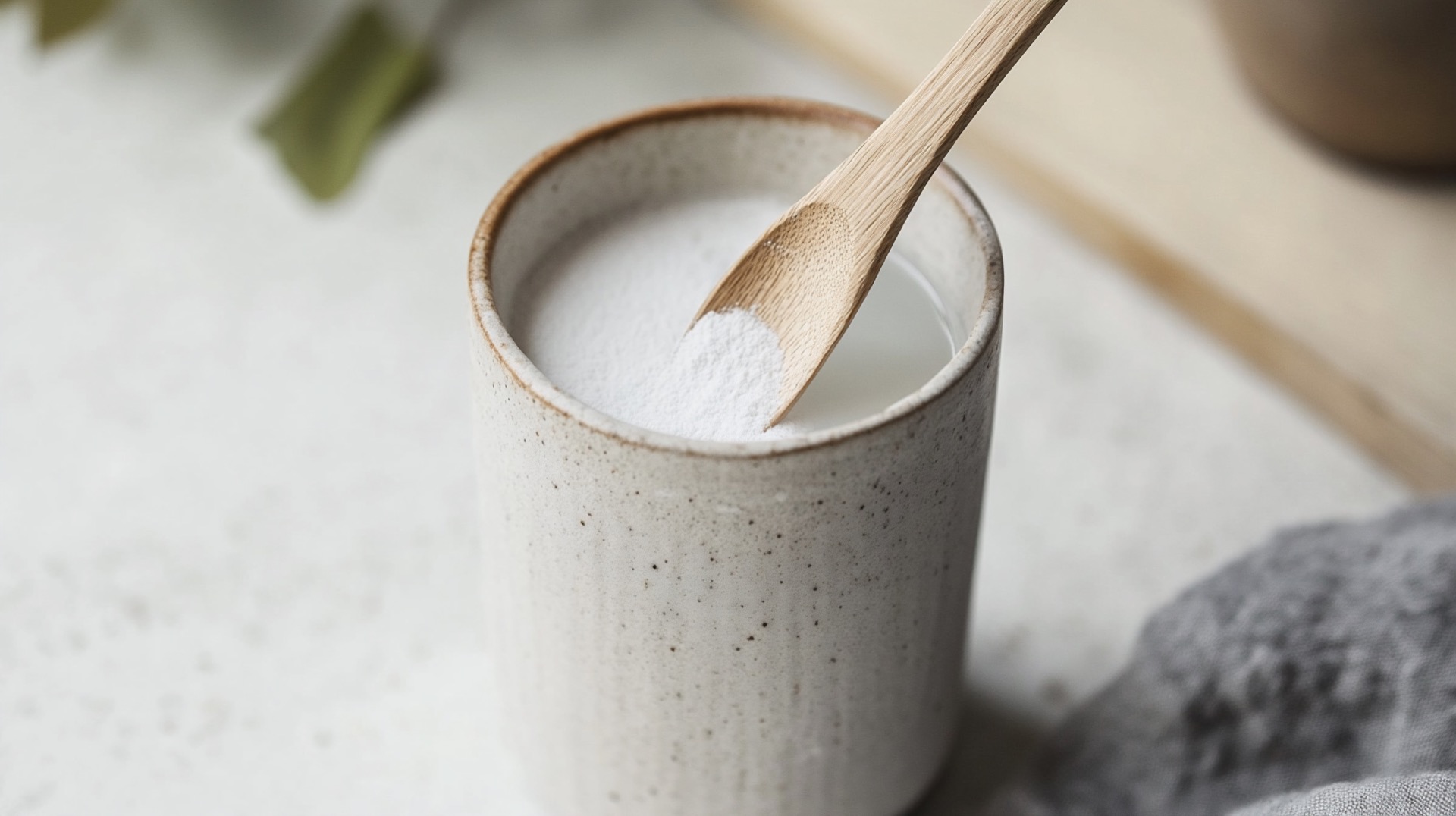Key takeaways
- Human studies have shown that curcumin supplementation (80-90 mg daily) significantly improves working memory, visual memory, attention, and verbal recall in healthy older adults over 12-18 months.
- Curcumin enhances memory through its powerful antioxidant and anti-inflammatory effects, disruption of Alzheimer-related amyloid plaques, and promotion of neurogenesis in the hippocampus.
- Regular turmeric has poor absorption, so enhanced formulations, such as Longvida or Meriva, are needed for therapeutic effects. Alternatively, combining turmeric with black pepper can improve absorption naturally.
Overview
Turmeric, a vibrant yellow spice typically associated with curries, has a centuries-long history in traditional medicine.
Its active component, curcumin, has garnered significant attention over the past decades for its potential therapeutic applications.
From its anti-inflammatory benefits to its antioxidant properties, the wonders of turmeric extend far beyond its culinary appeal. But can turmeric improve memory?
Recent scientific research suggests that turmeric and its curcumin compounds may influence memory and cognitive function in both healthy individuals and those with neurodegenerative conditions.
This blog examines the evidence and mechanisms that link turmeric to memory enhancement.
The cognitive potential of Curcumin
Curcumin is the primary bioactive compound in turmeric, making up approximately 75-80% of the total curcuminoids, which are a natural blend of curcumin, bisdemethoxycurcumin, and demethoxycurcumin.
Its neuroprotective properties have generated interest as a potential adjunct in cognitive health and the treatment of neurodegenerative diseases.
Mechanisms supporting brain health
Curcumin offers several mechanisms that may influence brain health and memory:
- Antioxidant and anti-inflammatory effects
Oxidative stress and chronic inflammation are key contributors to neurodegenerative diseases and cognitive decline. Curcumin mitigates oxidative damage by boosting antioxidant defenses, including glutathione, catalase, and superoxide dismutase. It also modulates inflammatory pathways by suppressing nuclear factor-kappa B (NF-κB) and cytokine production, thereby protecting neurons from damage.
- Amyloid beta (Aβ) modulation
Alzheimer’s disease (AD) pathology involves the aggregation of amyloid beta (Aβ) peptides into plaques, a hallmark feature of the condition. Curcumin has shown promise in disrupting Aβ fibril formation, destabilizing existing fibrils, and enhancing macrophage uptake of Aβ peptides. These effects indicate a potential to delay or prevent the progression of Alzheimer’s.
- Neurogenesis and synaptic plasticity
Studies in rodents have suggested that curcumin supports neurogenesis, particularly in the hippocampus, a brain region critical for memory and learning. By modulating levels of brain-derived neurotrophic factor (BDNF), curcumin promotes synaptic plasticity, contributing to improved learning and memory.
- Protection against neurotoxins
Trimethyltin chloride (TMT) is a neurotoxic compound that induces cognitive deficits and causes the destruction of hippocampal neurons. Animal studies reveal that turmeric extract can prevent TMT-induced memory deficits and neuronal loss, further supporting curcumin’s neuroprotective role.
Evidence from human studies
Human trials have provided insights into turmeric’s potential to improve memory and cognitive function:
- Healthy older adults
A study involving 80 participants aged 50 to 85 examined the effects of 12 weeks of daily supplementation with Longvida curcumin (400 mg/day, providing 80 mg of curcumin) compared to a placebo. The curcumin group demonstrated significant improvements in working memory, as assessed by the Serial Sevens, Serial Threes, and Morris Water Maze tests. Additionally, participants reported reduced fatigue and lower scores on mood disturbances.
- Long-term cognitive benefits
A separate double-blind, placebo-controlled study tested curcumin supplementation (90 mg twice daily for 18 months) in a cohort of non-demented older adults. Results showed enhancements in visual memory, attention, and verbal recall. PET scans further revealed decreased amyloid beta and tau protein accumulation in brain regions associated with Alzheimer’s pathology.
- Impact on mood and cognitive fatigue
Curcumin supplementation has also been associated with improved mood and reduced cognitive fatigue, factors that indirectly affect memory. Lower levels of tension, anger, and confusion reported in some studies suggest that curcumin plays a role in holistic cognitive health.
Optimal dosages of Curcumin for memory
The efficacy of curcumin is heavily influenced by its dose, formulation, and bioavailability. Curcumin’s bioavailability is limited due to poor intestinal absorption, rapid metabolism, and systemic elimination. To address these challenges, researchers have developed enhanced formulations:
- Lipidated Curcumin (e.g., Longvida®)
Studies suggest that 400 mg per day, providing approximately 80 mg of absorbable curcumin, may benefit memory and learning over 12 weeks.
- Turmeric rhizome extract
Animal studies demonstrate significant cognitive improvements at doses of 200 mg/kg body weight, indicating a potential translation to human applications with appropriately scaled doses.
- Phytosomal Curcumin (Meriva®)
Phytosomal formulations enhance the bioavailability of curcumin by utilizing phospholipids. Doses of 1,000 mg/day have been tested in cognitive and inflammatory research.
Limitations and considerations
Despite the growing evidence, several limitations must be considered when examining the effects of turmeric on memory:
- Variability in bioavailability
Different formulations of curcumin impact absorption rates, which may explain inconsistent findings across studies.
- Population-specific effects
While positive effects have been noted in healthy older adults and those at risk of neurodegeneration, the benefits may vary in younger populations or individuals without cognitive deficits.
- Adverse effects
Curcumin is generally well-tolerated, though high doses may cause gastrointestinal issues such as diarrhea or bloating.
- Potential interactions
Curcumin can interact with blood-thinning medications and may affect glucose levels, necessitating caution in specific populations.
Practical applications for memory enhancement
Given the evidence, turmeric and curcumin may serve as valuable tools for enhancing cognitive function, particularly in older adults or individuals at risk of neurodegenerative conditions. To incorporate turmeric into your routine:
Dietary sources
Add turmeric to curries, soups, and teas. Combining turmeric with black pepper (which contains piperine) can enhance curcumin absorption.
Curcumin supplements
Opt for bioavailability-enhanced formulations, such as Longvida®, Meriva®, or Theracurmin®. Follow the dosage recommendations provided on the product label.
Consult healthcare professionals
Before starting curcumin supplementation, consult a healthcare provider, especially if you have pre-existing medical conditions or are taking medications.
Bottom line
Curcumin, the golden compound of turmeric, holds exciting promise for memory enhancement and neuroprotection. While further research is necessary to elucidate its mechanisms and efficacy in diverse populations fully, current evidence highlights its potential to safeguard brain health.
Whether through dietary inclusion or supplementation, turmeric offers a nutritionally dense and scientifically supported approach to improving cognitive function.
For those curious about improving their memory or supporting long-term brain health, incorporating turmeric into a lifestyle could be the first small yet significant step toward achieving substantial cognitive benefits.
References
- Cox, K.H.M. et al. (2020). Further Evidence of Benefits to Mood and Working Memory from Lipidated Curcumin in Healthy Older People. Nutrients, 12(6), 1678.
- Yuliani, S., Mustofa, & Partadiredja, G. (2017). Turmeric (Curcuma longa L.) extract may prevent the deterioration of spatial memory in trimethyltin-exposed rats. Drug and Chemical Toxicology.
- Ahmed, T., & Gilani, A.-H. (2009). Inhibitory effect of curcuminoids on acetylcholinesterase activity and attenuation of scopolamine-induced amnesia. Pharmacology, Biochemistry and Behavior, 91(4), 554–559.








